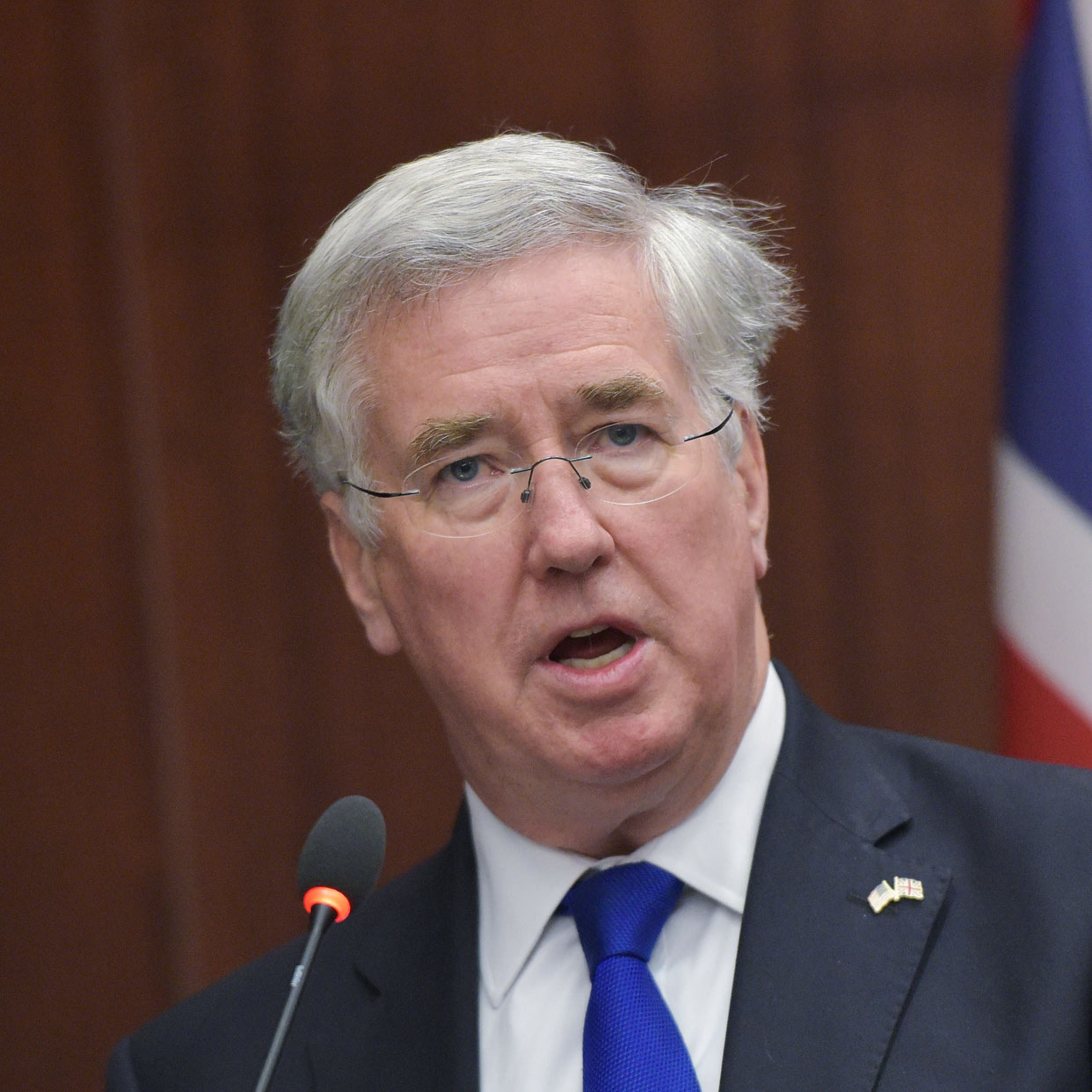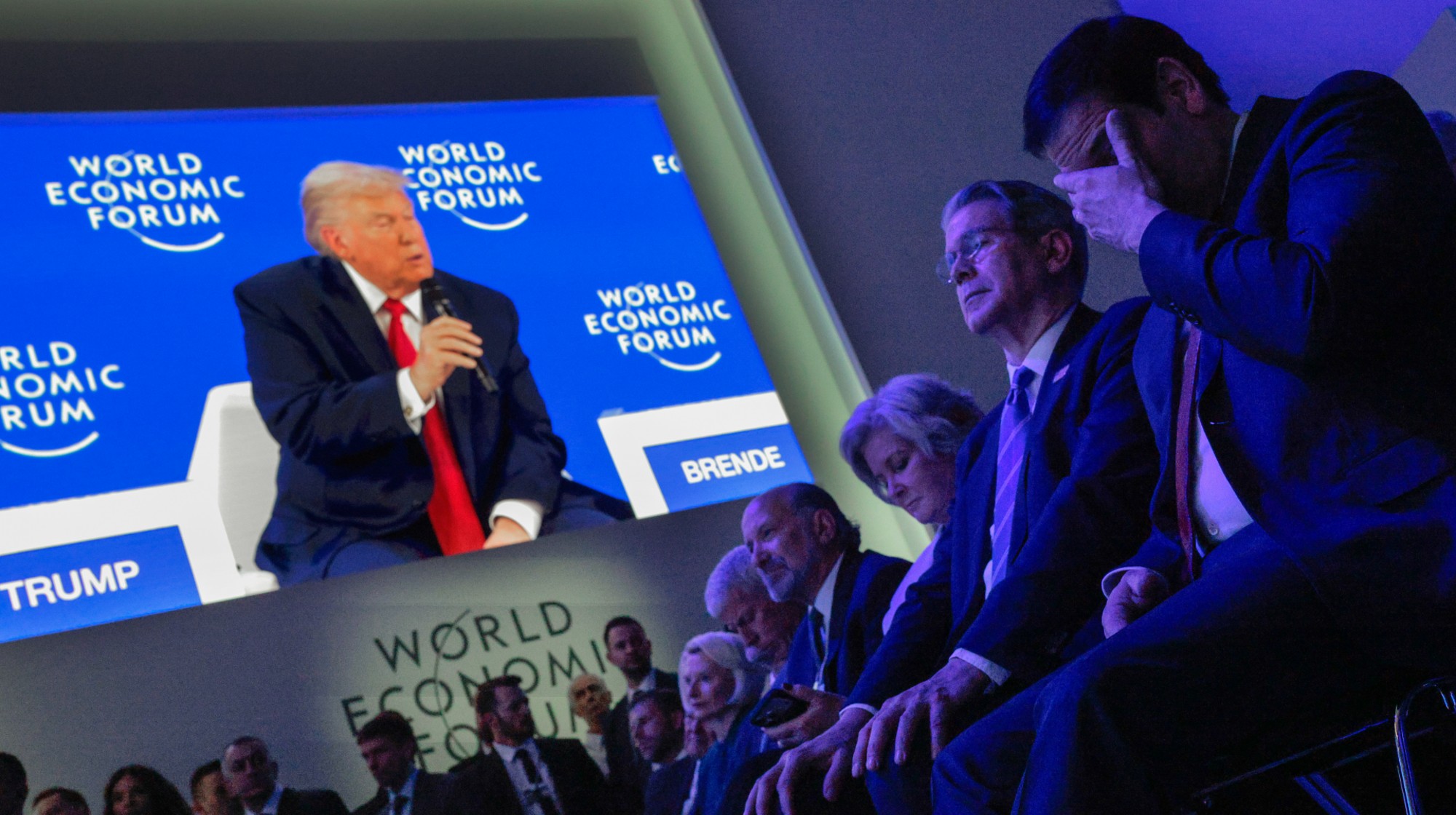Russia using cyber hacks to 'disable' western democracy
Defence Secretary Sir Michael Fallon warns Nato must defend itself in cyber space as it does on land, air and sea

A free daily email with the biggest news stories of the day – and the best features from TheWeek.com
You are now subscribed
Your newsletter sign-up was successful
Vladimir Putin's Russia is using cyber attacks to undermine democracy in Europe and the United States, Defence Secretary Sir Michael Fallon has warned.
Speaking at the University of St Andrews, Fallon accused Russia of "weaponising misinformation" and called on Nato to do more to combat the "false reality" being created by the Kremlin.
"Nato must defend itself as effectively in the cyber sphere as it does in the air, on land and at sea," he said.
The Week
Escape your echo chamber. Get the facts behind the news, plus analysis from multiple perspectives.

Sign up for The Week's Free Newsletters
From our morning news briefing to a weekly Good News Newsletter, get the best of The Week delivered directly to your inbox.
From our morning news briefing to a weekly Good News Newsletter, get the best of The Week delivered directly to your inbox.
The Defence Secretary said there had been a "persistent pattern of behaviour" by Moscow, highlighting a series of cyber attacks that had been linked to Russia.
"Today we see a country that in weaponising misinformation has created what we might now see as the post-truth age. Part of that is the use of cyber-weaponry to disrupt critical infrastructure and disable democratic machinery," he said.
"Russia is clearly testing Nato and the west. It is seeking to expand its sphere of influence, destabilise countries and weaken the alliance."
Moscow is believed to have orchestrated "a string of high-profile cyber attacks across Europe and America", the Daily Telegraph says, including an interruption of French television channel TV5 Monde broadcasting in 2015 and a shut-down of the German parliamentary network months later.
A free daily email with the biggest news stories of the day – and the best features from TheWeek.com
Fallon used the speech to back US President Donald Trump's call for Nato member states to "honour the commitment to spend two per cent of GDP on defence", Sky News says.
However, his "anti-Russian rhetoric contrasts with that of Donald Trump, who, in a shift from his predecessor, Barack Obama, appears to be moving towards rapprochement with Moscow", The Guardian says.
The speech comes just ahead of Prime Minister Theresa May's arrival in Malta for an informal EU summit, at which she is expected to push for a funding boost from EU Nato members.
-
 Gisèle Pelicot’s ‘extraordinarily courageous’ memoir is a ‘compelling’ read
Gisèle Pelicot’s ‘extraordinarily courageous’ memoir is a ‘compelling’ readIn the Spotlight A Hymn to Life is a ‘riveting’ account of Pelicot’s ordeal and a ‘rousing feminist manifesto’
-
 The EU’s war on fast fashion
The EU’s war on fast fashionIn the Spotlight Bloc launches investigation into Shein over sale of weapons and ‘childlike’ sex dolls, alongside efforts to tax e-commerce giants and combat textile waste
-
 How to Get to Heaven from Belfast: a ‘highly entertaining ride’
How to Get to Heaven from Belfast: a ‘highly entertaining ride’The Week Recommends Mystery-comedy from the creator of Derry Girls should be ‘your new binge-watch’
-
 Epstein files topple law CEO, roil UK government
Epstein files topple law CEO, roil UK governmentSpeed Read Peter Mandelson, Britain’s former ambassador to the US, is caught up in the scandal
-
 Iran and US prepare to meet after skirmishes
Iran and US prepare to meet after skirmishesSpeed Read The incident comes amid heightened tensions in the Middle East
-
 Israel retrieves final hostage’s body from Gaza
Israel retrieves final hostage’s body from GazaSpeed Read The 24-year-old police officer was killed during the initial Hamas attack
-
 China’s Xi targets top general in growing purge
China’s Xi targets top general in growing purgeSpeed Read Zhang Youxia is being investigated over ‘grave violations’ of the law
-
 Panama and Canada are negotiating over a crucial copper mine
Panama and Canada are negotiating over a crucial copper mineIn the Spotlight Panama is set to make a final decision on the mine this summer
-
 Trump backs off Greenland threats, declares ‘deal’
Trump backs off Greenland threats, declares ‘deal’Speed Read Trump and NATO have ‘formed the framework for a future deal,’ the president claimed
-
 Why Greenland’s natural resources are nearly impossible to mine
Why Greenland’s natural resources are nearly impossible to mineThe Explainer The country’s natural landscape makes the task extremely difficult
-
 Iran cuts internet as protests escalate
Iran cuts internet as protests escalateSpeed Reada Government buildings across the country have been set on fire